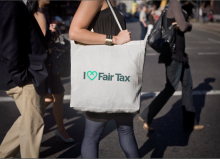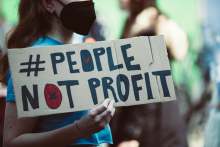When Ethical Consumer rates a company, we make an educated guess as to whether it is likely to be involved in tax avoidance activities.
We don’t have the resources to do a detailed assessment of every company’s accounts, so our main method is to look at its family tree and find out if it has two or more ‘high-risk’ subsidiaries – ones that don’t appear to be serving the local population, such as holding companies – in any jurisdictions that are on our tax haven list.
The countries in the list below are as of 2023 and it has nearly doubled from previously to now be over 70.
| Countries classed as tax havens | |
|---|---|
|
|
Our methodology
To construct our new list, we used the same methodology we used last time, which is largely based on the Tax Justice Network’s Financial Secrecy Index (FSI) and the Fair Tax Foundation’s list of tax havens.
The FSI index estimates the proportion of international tax avoidance taking place in each jurisdiction. However, our purpose is somewhat different – we want to know the chances that a subsidiary is being used for tax avoidance, versus the chance that it is there legitimately. The latter is determined partly by the size of the country in question, so we always adjust the FSI value for population.
This gives us a list of jurisdictions with high rates of tax avoidance and low populations, like the British Virgin Islands and Bermuda.
However, if we aren’t going to miss an awful lot of corporate tax avoidance, we then need to add back in crucial tax havens with larger populations. We did this using an academic paper that used a huge amount of data to identify 24 ‘sink’ tax havens and 5 ‘conduit’ jurisdictions. The UK is on this list as a ‘conduit’. We removed that, as including it would lead to too many false positives, since we are in the UK. We added all the others.
That gave the list above, which is our new tax havens list.
Checking the list
The list matches up well with the jurisdictions that get identified in discussions and books about tax avoidance. However, for rigour, we checked it specifically against two other sources. First, a paper by Oxfam, which identifies what it sees as the top 15 corporate tax havens in the world. All of these are on our new list, which reassures us that we aren’t missing any important ones.
Secondly, we checked the tax rates and rules of all of the jurisdictions on the list. Many of those on the proposed list have a corporate tax rate of 15% or below. In all cases where it is higher than that there are substantial exemptions, particularly for non-resident companies. In other words, it is no mystery why they are corporate tax havens. That reassures us that nothing untoward has sneaked on to the list.



